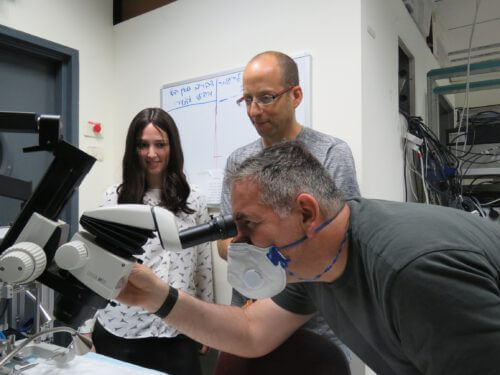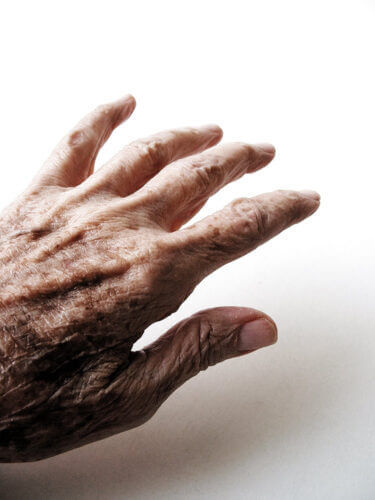A team of researchers from Prof. Yizhar Bar-Gad's laboratory at the Gonda Multidisciplinary Brain Research Center at Bar-Ilan University won a prize in the BEAT-PD international competition, alongside a team of researchers from Harvard

The neuroscience team from Bar-Ilan University is one of four winners of the Michael J. Fox Foundation for Parkinson's Research (MJFF) and Sage Bionetworks BEAT-PD (Biomarker and Endpoint Evaluation for Parkinson's Disease Monitoring) DREAM Challenge, the goal of the competition is to determine new scientific methods for predicting progression Parkinson's disease. The competition was held under the auspices of the Michael J. Foundation. Fox, the world's largest foundation for Parkinson's disease research, founded by the Canadian-born Hollywood actor, who was diagnosed with Parkinson's about 30 years ago and has since become an activist. The competition was held as part of a series of DREAM competitions, which in the past led to breakthroughs in the diagnosis and treatment of a variety of diseases and to the development of tools in the field of data science. Representatives from research institutions and leading commercial companies participate in the competition.
The Bar-Ilan team was led by Prof. Yizhar Bar-Gad, director of the Neural Interfaces Laboratory at the Gonda Multidisciplinary Center for Brain Research, of Bar-Ilan University, along with PhD students Ayala Metzner and Yuval El-Hanni. . The Neural Interface Laboratory led by Prof. Bar-Gad aims at the study of two-way interaction between computerized systems and the central nervous system. Researchers in the laboratory are currently focusing on the neurophysiology of motor and behavioral disorders related to basal ganglia function such as Parkinson's disease, obsessive compulsive disorder (OCD) and Tourette's syndrome, and correcting their symptoms using electrical or magnetic modulation.
This year's competition was aimed at developing groundbreaking methods for the automatic evaluation of Parkinson's disease symptoms from information collected from smart wristwatches worn by the patients. Teams from all over the world have developed tools to objectively predict the symptoms from the information collected. The results reached by the researchers were compared to the subjective report of the severity of the symptoms given by the patients, and were ranked according to their degree of appropriateness. The Israeli team is placed right after a team from Harvard University and before dozens of teams from leading American universities and commercial companies specializing in medical signal analysis. The team from Prof. Bar-Gad's laboratory was the only one outside the United States to win the award. The solution developed by the team combined methods from brain science and data science to create a machine learning model for personal prediction of the patients' perception of symptoms.

Mark Fraser, Ph.D., Senior Vice President of Research Programs at MJFF: "We congratulate all the winners. The foundation has been supporting research on sensors and other digital tools for Parkinson's for many years, BEAT-PD projects unlock the potential of data collected by digital devices to help people with Parkinson's, their doctors and researchers. Now more than ever we understand the critical importance of remote monitoring for the safe and efficient delivery of health services and the advancement of clinical research."
In the previous data challenge, teams demonstrated that their disease status and symptom severity could be predicted using data collected during the completion of specific tasks while supervised by a physician. The BEAT-PD challenge built on this basis is to determine whether it is possible to assess the severity of the disease from passive sensor data from consumer electronics, collected during daily life, rather than pre-defined tasks, which will bring us closer to the promise of home control of the diseases. progress. Three of the teams, including Vestry, approached the problem by applying signal processing methods to the smart sensor and smartphone data, the results of which were then used in machine learning models that enabled patient-specific characteristics.
Forty-three teams participated in the challenge with data hosted by the BRAIN Commons, a scalable cloud-based computational discovery platform designed for the brain health community. The winners share a prize of $25,000. The winning teams were invited to collaborate to improve their individual models, as well as test them on a validated symptom severity rating, and author a manuscript based on their findings.

2 תגובות
Moses
Huldah Clarke didn't heal anyone - she just makes money off people with low intellectual ability - like you
Dr. Huldah Clark already cured people from Parkinson's 25 years ago. But what to do, healthy people is not a good income for certain companies.